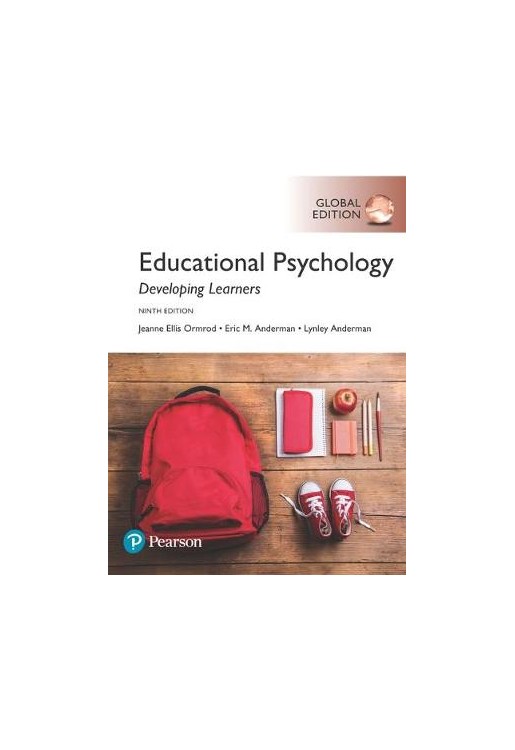Designed for both undergraduate and masters-level introduction to educational psychology courses.
Helps students understand their own learning and apply the core concepts and principles of educational psychology.
Educational Psychology: Developing Learners is known for its exceptionally clear and engaging writing, its in-depth focus on learning, and its extensive concrete applications. The text's unique approach helps students understand concepts by examining their own learning and then showing them how to apply these concepts as teachers. The text moves seamlessly between theory and applications, features the most extensive and integrated coverage of diversity, contexts of learning, and neuropsychology and brain development. It also includes innumerable concrete examples and artifacts to help readers connect educational psychology to real children and classrooms.
- Chapter 1 Teaching and Educational Psychology
- Part I Development and Diversity
- Chapter 2 Cognitive and Linguistic Development
- Chapter 3 Personal and Social Development
- Chapter 4 Group Differences
- Chapter 5 Individual Differences and Special Educational Needs
- Part II Learning and Motivation
- Chapter 6 Learning, Cognition, and Memory
- Chapter 7 Complex Cognitive Processes
- Chapter 8 Learning and Cognition in Context
- Chapter 9 Behaviorist Views of Learning
- Chapter 10 Social Cognitive Views of Learning
- Chapter 11 Motivation and Affect
- Part III Classroom Strategies
- Chapter 12 Instructional Strategies
- Chapter 13 Creating a Productive Learning Environment
- Chapter 14 Classroom Assessment Strategies
- Chapter 15 Summarizing Students’ Achievements and Abilities
- Appendices
- Appendix A: Describing Associations with Correlation Coefficients A-1
- Appendix B: Determining Reliability and Predictive Validity B-1
- Appendix C: Matching Book and MyEducationLab Content to the Praxis® Principles of Learning and Teaching Tests C-1




